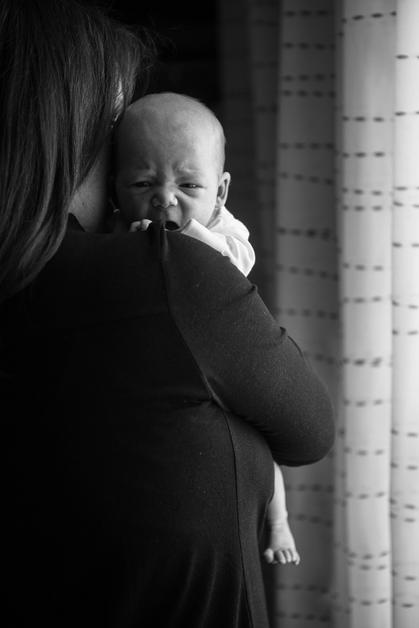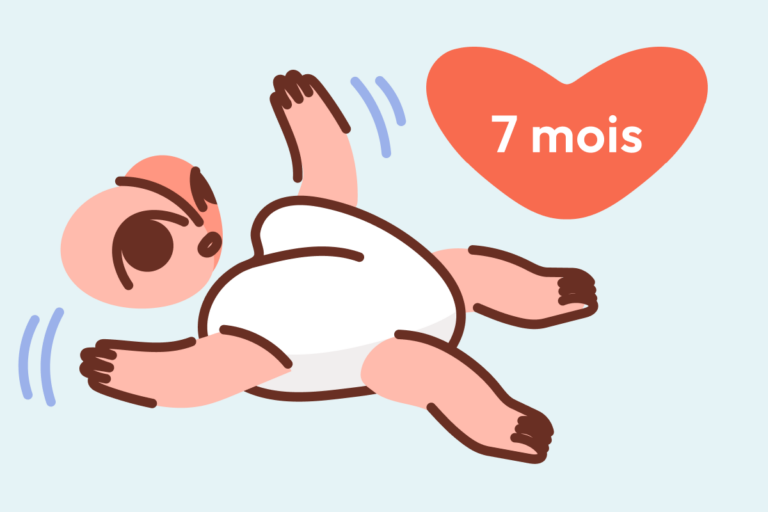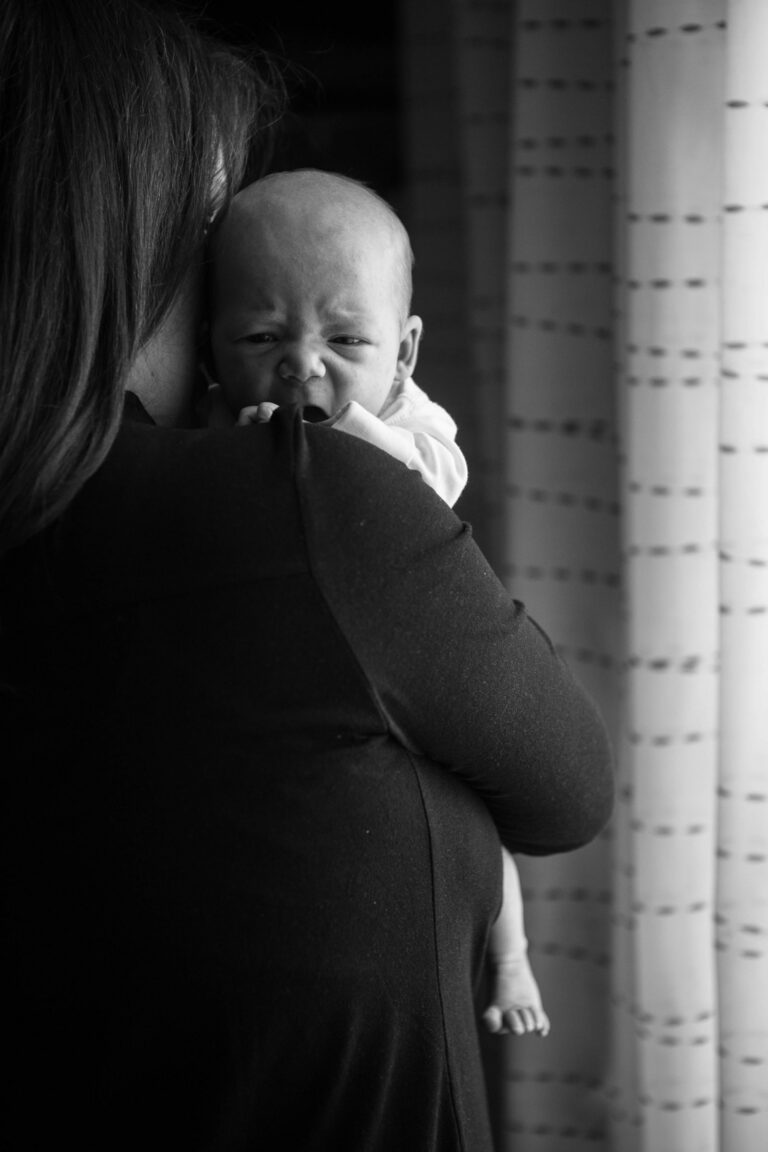Tiny lungs, fragile airways, and cries that tug at your heart—when a baby cough interrupts your child’s sleep or feeding, worry inevitably follows. Every parent, at some moment, stands at the crib, measuring the rhythm of each breath and scanning for clues. Could this be a simple cold? Or does this persistent baby cough suggest an underlying cause like allergies, infection, or even something environmental? Questions tumble in, each vying for reassurance or a clear answer. The journey begins with vigilance—how to decode the sounds of a cough, untangle symptoms that overlap, spot warning signs early, and know when gentle home remedies suffice or when a trip to the doctor becomes necessary. Here, science and practical wisdom blend, arming parents with what they need to soothe and safeguard their child.
Baby cough: what every parent needs to notice
Recognising a baby cough isn’t just about hearing a sound—it means understanding why baby airways are so delicate. Unlike adults, a baby’s immune defenses are still learning their job. Their smaller airways make them far more reactive to even mild irritation, whether from a common cold, a bit of dust in the air, or teething-related dribble. It’s not rare to hear an occasional tickle after a bout of laughter or a frustrated wail, but the moment that cough lingers or shifts in tone, concern rises sharply. How does one know when a baby cough signals a fleeting spell—or the start of something serious?
Spotting the difference: harmless sounds or signs to worry?
Picture a quick, dry sound when cool air hits the throat—sometimes just a passing irritation. On the flip side, a cough with fever, wheezing, or gasping for air breaks the illusion of security. Here’s the checklist that should always trigger further attention:
- Breathing appears difficult—rapid, with visible chest retractions or nasal flaring.
- Bluish tint on lips or skin.
- Refusal to feed or sudden tiredness far beyond “just sleepy.”
- Cough refuses to leave, persisting for more than three weeks, or seems to be getting worse instead of better.
- Vomiting after coughing, especially when repeated.
Any of these signals merit immediate consideration of a doctor’s opinion—no hesitation.
Types of baby cough: more than just a sound
Baby cough comes in several forms, each shedding light on what might be brewing inside those small lungs.
Dry cough: More than a tickle
This cough crackles in the air, mostly without mucus. Viral infections or a sudden whiff of cold air often trigger it, creating a pattern that might seem louder at night. Persistent dry cough? For some, it’s an early whisper of asthma or airway irritation—never ignore if it keeps returning.
Chesty (productive) cough: The body cleaning house
A wet-sounding baby cough often signals the body hard at work, sweeping out mucus caused by viral fevers, flu, or even a touch of bronchitis. While clearing mucus may provide relief, too much can prevent your baby from sleeping or feeding, and that’s when closer observation is wise.
Barking cough: Think of a seal
When a cough is harsh and jarring, almost echoing like a bark, parents should consider croup. Caused by swelling around the voice box (the larynx) and windpipe, this type of cough grows sharper at night and may be joined by a strange, high-pitched sound when the baby breathes in—known as stridor. Difficulty in breathing? Don’t wait.
Whooping cough: Rapid fits
A signature fit of repeated coughing followed by a long gasp that sounds like a “whoop.” Babies, especially those too young for their full vaccination schedule, are at risk here. Whooping cough brings with it not only persistent symptoms but a real risk of complications—urgent care is warranted.
Wheeze or stridor: Whistle and alarm bells
Wheezing—a high-pitched sound during breath out—often points to asthma or early bronchiolitis, while stridor is a warning of upper airway issues. Each requires medical evaluation, fast.
Choking or sudden onset cough: Red alert
If cough starts suddenly, particularly when feeding or with play, suspect a foreign object. Even a small bit of food or toy can block baby’s airway—this is an instant emergency.
Nighttime or persistent coughs: When to keep watching
Long nights with recurring or never-ending coughs? Causes could include persistent postnasal drip, allergies, reflux (GERD), or even undiagnosed asthma. No improvement after weeks—always see a doctor.
Causes of baby cough: deep diving into the triggers
Understanding what sparks a baby cough sheds light on the right treatment plan.
Infections: Viruses always on the move
The most common reason remains simple—viruses, like the common cold, influenza, RSV, and even COVID-19. Babies display a typical pattern—congestion, fever, cough, occasionally wheezing. RSV, notorious in infants, can rapidly progress to fast breathing or difficulty in feeding.
Bacterial invaders: When things escalate
Unlike viral irritations, bacteria (think pneumonia or pertussis/whooping cough) yield a stubborn, severe cough with fever. Energy drains quickly and eating becomes a challenge. Resolving these calls for antibiotics—not home remedies.
Environmental allergies and smoke: Invisible culprits
Dust mites, pollen, pet fur, or household smoke have a way of stirring up baby cough. Even strong perfumes or air fresheners can set off a spate of coughing. Cleaner air is always the first ally.
Asthma: Inflammation beneath the surface
For some, cough seems to spring up at night or after excitement—an early red flag for asthma. This is airway inflammation at play, and its hallmark signs—dry cough, wheeze, and shortness of breath—demand medical insight.
Croup and swelling: Narrow passages, big sounds
When swelling targets the upper airway, croup arrives—marked by stridor and the infamous barking cough. Allergies and certain infections are also often involved in upper airway troubles.
Reflux: Stomach acid back up
After mealtime, stomach contents moving backwards can irritate the baby’s throat, sparking a cough. GERD more commonly manifests as coughing after feeds or when lying down.
Teething and drool: A minor source
While increased saliva during teething may provoke a gentle cough, it’s rarely the only cause. Severe or regular cough should not be brushed away as just teething.
Foreign object: Sudden surprises
Sharp, abrupt coughs, especially during a meal or play, mean you must consider aspiration—a small object blocking the airway. Sometimes, persistent cough with no other clear source leads to the discovery of airway abnormalities present since birth.
Symptoms and warning signs to track
Baby cough is rarely flying solo—what extra signals should parents be looking out for?
Everyday companions: Congestion, fever, irritability
Expect runny or blocked nose, perhaps a low-grade fever, sleep disruptions, or a change in feeding habits. Some babies become fussier or tire quickly; others simply refuse their bottle or breast altogether.
Difficulty breathing: Time for rapid response
Is your baby breathing faster? Are the muscles between the ribs pulling in with each breath (retractions)? Do you hear unusual sounds like grunting or noisy breathing on exhale? These are the signs to act on immediately.
Other urgent signs
Blue lips, face, or tongue. Unusual drowsiness, repeated vomiting, or refusal of any food or drink. In severe cases, fewer wet nappies signal dehydration—especially if the baby’s fontanelle (that soft spot on the head) looks sunken.
Persistent cough
Three weeks—and it just won’t quit? If cough remains unyielding or worsens, or is accompanied by signs like stunted weight gain, pause and pick up the phone to your doctor.
Diagnosing baby cough: bringing science home
First step: Parent observations
Medical assessment begins with your memory—when did the cough start, what does it sound like, what has changed in feeding, sleep, or play? Any exposures to illness in day care or the neighbourhood?
Clinical checks
Doctors will listen to every detail—chest, back, breathing sounds, nose, and mouth inspection. Some conditions have recognisable patterns: wheezing for asthma, stridor for airway swelling, or crackling sounds in pneumonia.
Confirmatory exams
Chest X-rays (for stubborn cough), nasal/throat swabs (detecting viruses or bacteria), blood tests (for inflammation), and sometimes allergy screening or reflux investigation make up the diagnostic arsenal. Persistent, non-responsive cough? Allergies and reflux deserve a closer look.
Ruling out the unexpected
When treatments fail, doctors broaden the search. Asthma and allergies commonly masquerade as a chronic cough; rarely, more complex airway differences come to light.
When to seek medical advice: recognising urgency
The spectrum is wide—most baby cough episodes remain easily managed at home, but some need urgent evaluation.
Emergency signals
Struggling to breathe? Blue lips or face? Floppy and unresponsive? No urine for eight hours? These demand prompt medical attention.
When doctor consultation matters
Call for help if breathing is noticeably faster or laboured, cough persists beyond three weeks, fever spikes with cough in very small babies, feeding falters dramatically, or your child seems unusually lethargic or cranky.
Age brings extra caution
Any cough in a newborn—0 to 3 months—is a call to your paediatrician, no waiting. For older babies and toddlers, keep a watchful eye and don’t delay if alarms ring.
The parent’s logbook
Sometimes, the pattern tells the story. Keep a quick note—frequency and type of cough, feeding and sleep variations, remedies tried. This log helps your doctor see the full picture.
Home care: gentle relief and safe practices
When a baby cough lingers but remains uncomplicated, simple measures often provide genuine comfort.
Keep hydration at forefront
Breastmilk, formula, and for older infants, small sips of water—all support moist throats and help thin secretions, making coughs less harsh.
Clear tiny noses with care
Saline drops plus a soft suction bulb do wonders for blocked noses, easing both breathing and feeding.
Humidity: Natural support
A cool-mist humidifier brings relief by moistening dry air—essential if winter brings stuffy rooms. Regular ventilation and abstinence from smoke or strong odours completes the circle of airway protection.
Upright moments, safe sleep
Hold your baby upright following a coughing spell or feed; it can ease discomfort. Slightly elevating the crib head (never with loose bedding, only with safe methods) may support better breathing. Always put babies under one year on their backs to sleep, without soft objects.
Things to avoid, always
No over-the-counter cough syrups—side effects far outweigh uncertain benefits. No honey in the first year, risk of infant botulism is simply not worth it. Avoid all smoke, sprays, or scented products near infants.
Easing sleep and routines
Gentle nasal care before bedtime, comfort feeds, soft lights—when illness upsets the day, restoring small rituals soothes everyone.
Medical and hospital-based treatment: when home isn’t enough
When only medicines work
Doctors reach for antibiotics when bacterial infections like pneumonia or whooping cough are found. Bronchodilators or steroids—the “puffers” and “syrups”—may be needed for asthma, severe croup, or significant airway swelling, but always under medical supervision.
Hospital support
Breathing difficulties unresolved at home call for oxygen, monitoring, and perhaps intravenous fluids in a hospital setting. Treatment tailors itself to the source and seriousness of the baby cough.
Recovery expectations: patience rewarded
Most viral coughs fade away with time and support. When antibiotics are given for bacterial cases, improvements often come within days. Stable feeding and breathing signal the path to home.
Prevention: a step ahead
Protecting the home environment
Open the windows when weather allows, keep humidity in check, avoid all exposures to smoke—these changes help cut down the frequency and severity of baby cough.
Immunisations and hand hygiene
Staying up to date with vaccinations protects against several serious infections. Hands washed before feeding or after a park visit? It is a shield against countless germs.
Everyday wisdom
Regular washing of toys, limiting encounters with sick visitors, and breastfeeding if possible all build a baby’s defenses. Controlling room humidity and dust further reduces cough triggers.
Complications: when baby cough lingers
Pneumonia and bronchitis—serious escalation
Untreated or severe respiratory infections can lead to pneumonia or bronchitis—conditions needing targeted care.
Dehydration and distress
Babies unable to eat or drink enough, especially after repeated cough and vomit episodes, run the risk of dehydration—requiring urgent rehydration.
Chronic respiratory troubles
For some, frequent cough and bronchiolitis pave the way for long-term problems like asthma. It’s more than a passing worry—energy, growth, and daily happiness are at stake.
Impact on daily well-being
Repeated nights of broken sleep and meals cut short by coughing strain both children and parents. Responsive, compassionate care makes recovery smoother and faster.
Myths and facts: separating truth from tradition
The lure of cough syrups
While tempting, over-the-counter cough syrups pose more risk than help to infants. Cough plays a role: it clears, it guards. Suppressing it, particularly without clear cause, invites complications.
Not every cough means infection
Allergies, reflux, or even environmental irritants produce cough—antibiotics are not the answer each time. Careful assessment matters.
Teething and myth-busting
Excess saliva from teething leads to the mildest of coughs—serious or enduring coughs always need more investigation, whatever other signs you see.
Safe home remedies: facts first
Hydration, cool-mist humidity, saline drops—simple, evidence-based aids. Honey, only for babies over one year. Strong oils or home concoctions? These are best discussed with your doctor first.
Parental guidance: empathy for the journey
Keeping an eye, trusting instincts
Pay close attention—nobody knows a baby better than a parent alert to small changes. Instincts, honed over hours at the cot or in quiet moments, should always prompt action when doubt appears.
Handling the emotional toll
An unwell baby tests every ounce of patience. Take small breaks, lean on your network, and remember—rested parents provide the best care.
Professional guidance: never hesitate
Hesitation creates stress. If a symptom baffles you or if something feels wrong, calling your healthcare provider ensures both peace of mind and prompt care.
Key takeaways
- Most baby cough episodes are self-limiting and resolve with supportive, gentle care.
- Avoid cough syrups and honey for babies under one year—hydration, clear nasal passages, and comfort come first.
- Immediate action is needed with symptoms like difficulty breathing, blue lips, high fever, or repeated vomiting.
- Shaping a clean, ventilated home, up-to-date vaccinations, and sound hygiene helps ward off most cough triggers.
- Support is always available—whether from paediatricians or digital resources like the application Heloa for guidance, alerts, and health questionnaires designed for your child.
Questions Parents Ask
Can teething really cause a baby cough?
Sometimes you’ll notice a bit of coughing as teething ramps up drool, which can irritate the throat very mildly. But teething on its own won’t produce the sort of persistent or harsh cough that draws concern. If you spot other symptoms—fever, noisy breathing, or a cough that sticks around—it’s worth getting your baby checked to spot causes like infection or allergies.
When does baby cough turn into an emergency?
Sleeping soundly, then suddenly, baby struggles for breath—what do you do? Worry is understandable. Signs like blue or pale lips, struggling to catch breath, lengthy pauses between breaths, or not feeding alongside the cough all mean it’s time for urgent help. For tiny babies, especially under three months, any cough or change in breathing speed deserves a checkup. A parent’s instinct works—if something feels off, call or visit your doctor.
How can I help my baby sleep better despite a cough?
A humidifier in the room, gentle nasal saline drops, and safely elevating the head of the crib (always without loose bedding) offer practical relief. Keep the room free from strong scents and prioritise comfort feeds. Rest is harder to come by with a cough, so if your baby continues to struggle at night, trust yourself and consult a health professional for an extra layer of reassurance. Each small gesture—your touch, your calm—helps recovery along.
Further reading:









